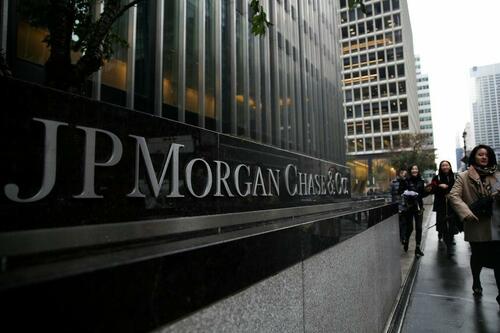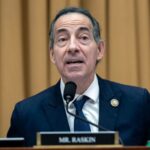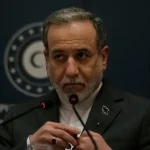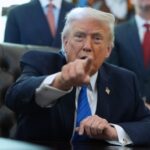
Having already paid over $1 billion in fines (in 2020) for 'spoofing' markets, JPMorgan is once again making the wrong kind of headlines as more details of the bank's manipulations come to light in the trial of three senior precious metals traders.
“This was an open strategy on the desk,” said former JPMorgan precious metals trader Christian Trunz, who has pleaded guilty to spoofing charges and is cooperating with prosecutors.
“It wasn’t hidden.”
As Bloomberg reports, Trunz, who pleaded guilty in 2019 to spoofing conspiracy and is cooperating with prosecutors, is the third former JPM trader to testify at the fraud and racketeering trial of Gregg Smith and two other senior employees at JPMorgan’s precious-metals desk: Managing Director Michael Nowak and hedge-fund salesman Jeffrey Ruffo. They’re accused of systematically cheating to help themselves and their top clients for years.
“We all traded that way,” Trunz said.
“We utilized that strategy on the desk to make money for ourselves and for our clients.”
The goal of spoofing was to trick the rival computers into buying or selling to benefit JPMorgan’s position, by using a large volume of bogus orders to create the false market impression, he said.
“Those trades were deceptive,” Trunz said of the thousands of spoof orders the desk placed over the years.
“They were used to bring out a reaction from those algorithms to get what we needed done.”
During his testimony Tuesday and Wednesday, Trunz described several examples of his spoofing trades, and explained how they mimicked those by Smith, Nowak and others on the precious-metals desk at JPMorgan.
“We fully believed this was a battle” between the bank and the so-called algos, Trunz said.
“This was the first time when machines were interacting with humans on a trading platform. It was man versus machine.”
Smith spoofed almost every day, Nowak did so about once a week, and Ruffo, while not a trader, would sit next to Smith and encourage him to spoof the market to execute client orders at the best possible prices, Trunz said.
It wasn’t unusual to hear Ruffo urge Smith to “keep clicking, keep going,” with a spoof trade, Trunz said.
Trunz went on to explain that his boss coached him to lie to compliance officials about price-manipulating orders and later counseled him against pleading guilty as prosecutors were preparing criminal charges.
“Mike [Michael Nowak] made it clear to me that this was something that could get me fired,” Trunz, 37, said Wednesday, even though the bogus orders were a trading strategy used by everyone on the desk and a method he’d learned after joining the precious-metals team out of college.
“I wanted to keep my job,” he said, so he decided to lie to bank investigators.
Before Trunz was to meet with compliance officials, he said Nowak urged him to say “every order you put into the market you intended to trade.”
But that wasn’t true, Trunz said, because he and others at JPMorgan routinely placed large orders in gold and silver that they never intended to execute to push prices up or down. “These trades were the exact trading pattern we’d used for years.”
Trunz said he confided in Nowak, who encouraged him to hold fast.
“You’re not going to turn around and plead now, are you?” Nowak said, according to Trunz.
“We all have our reasons for trading the way we did,” Nowak told him. But Trunz told jurors that wasn’t true. Everyone on the desk had the same reason for spoofing, because it was part of their strategy to move prices in the direction they wanted, he said.
As Bloomberg points out, Nowak was once the most powerful person in the gold market. He ran the trading desk for a bank with some of the biggest hedge-fund clients and often dominated order flow in precious-metals futures.
Meanwhile, the woman who was overseeing JPM's global commodity business when some of this wrongdoing was ongoing all this went down wasn't hardy mentioned even once during any of the proceedings.
Having already paid over $1 billion in fines (in 2020) for ‘spoofing’ markets, JPMorgan is once again making the wrong kind of headlines as more details of the bank’s manipulations come to light in the trial of three senior precious metals traders.
“This was an open strategy on the desk,” said former JPMorgan precious metals trader Christian Trunz, who has pleaded guilty to spoofing charges and is cooperating with prosecutors.
“It wasn’t hidden.”
As Bloomberg reports, Trunz, who pleaded guilty in 2019 to spoofing conspiracy and is cooperating with prosecutors, is the third former JPM trader to testify at the fraud and racketeering trial of Gregg Smith and two other senior employees at JPMorgan’s precious-metals desk: Managing Director Michael Nowak and hedge-fund salesman Jeffrey Ruffo. They’re accused of systematically cheating to help themselves and their top clients for years.
“We all traded that way,” Trunz said.
“We utilized that strategy on the desk to make money for ourselves and for our clients.”
The goal of spoofing was to trick the rival computers into buying or selling to benefit JPMorgan’s position, by using a large volume of bogus orders to create the false market impression, he said.
“Those trades were deceptive,” Trunz said of the thousands of spoof orders the desk placed over the years.
“They were used to bring out a reaction from those algorithms to get what we needed done.”
During his testimony Tuesday and Wednesday, Trunz described several examples of his spoofing trades, and explained how they mimicked those by Smith, Nowak and others on the precious-metals desk at JPMorgan.
“We fully believed this was a battle” between the bank and the so-called algos, Trunz said.
“This was the first time when machines were interacting with humans on a trading platform. It was man versus machine.”
Smith spoofed almost every day, Nowak did so about once a week, and Ruffo, while not a trader, would sit next to Smith and encourage him to spoof the market to execute client orders at the best possible prices, Trunz said.
It wasn’t unusual to hear Ruffo urge Smith to “keep clicking, keep going,” with a spoof trade, Trunz said.
Trunz went on to explain that his boss coached him to lie to compliance officials about price-manipulating orders and later counseled him against pleading guilty as prosecutors were preparing criminal charges.
“Mike [Michael Nowak] made it clear to me that this was something that could get me fired,” Trunz, 37, said Wednesday, even though the bogus orders were a trading strategy used by everyone on the desk and a method he’d learned after joining the precious-metals team out of college.
“I wanted to keep my job,” he said, so he decided to lie to bank investigators.
Before Trunz was to meet with compliance officials, he said Nowak urged him to say “every order you put into the market you intended to trade.”
But that wasn’t true, Trunz said, because he and others at JPMorgan routinely placed large orders in gold and silver that they never intended to execute to push prices up or down. “These trades were the exact trading pattern we’d used for years.”
Trunz said he confided in Nowak, who encouraged him to hold fast.
“You’re not going to turn around and plead now, are you?” Nowak said, according to Trunz.
“We all have our reasons for trading the way we did,” Nowak told him. But Trunz told jurors that wasn’t true. Everyone on the desk had the same reason for spoofing, because it was part of their strategy to move prices in the direction they wanted, he said.
As Bloomberg points out, Nowak was once the most powerful person in the gold market. He ran the trading desk for a bank with some of the biggest hedge-fund clients and often dominated order flow in precious-metals futures.
Meanwhile, the woman who was overseeing JPM’s global commodity business when some of this wrongdoing was ongoing all this went down wasn’t hardy mentioned even once during any of the proceedings.





